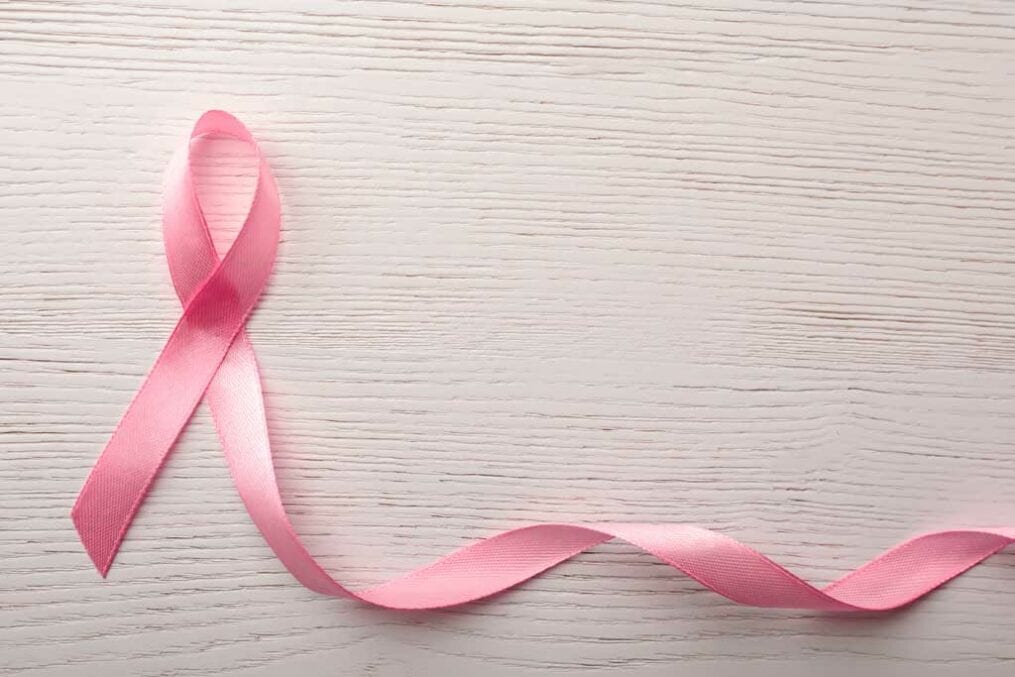5 ways to lower your breast cancer risk

It’s the most common cancer in the UK, yet we know four in 10 cases are preventable. Beat the odds by making these key changes, says breast cancer awareness campaigner Eluned Hughes.
1 Make activity part of life
Being active on a regular basis is one of the main lifestyle factors linked to breast cancer. Aim for the Department of Health’s recommended 150 minutes a week of moderate-intensity activity (something that gets you slightly out of breath), which could be brisk walking, cycling or swimming. Then, ideally, include some more vigorous exercise, such as strength training, gym trips or classes. Try to avoid a sedentary lifestyle the rest of the time by taking desk breaks, using the stairs not the lift, and so on. One reason activity is so important is partly to do with controlling oestrogen levels. Bottom line: get moving.
2 Maintain a healthy weight
Gaining weight in adult life adds to your risk, so maintaining a healthy BMI is important. It’s a complex issue with many overlapping factors, but hormones are key. After menopause you mainly make oestrogen via fat cells; the more fat cells you have, the higher your oestrogen levels, which ups your risk. If you’re overweight before menopause, your risk is slightly decreased as excess weight affects your menstrual cycle. But with only 20% of breast cancer cases in women under 50, that’s not a green light to gain weight in your younger decades. Better to stay at a healthy BMI throughout life to reap the protective effects post-menopause.
3 Watch your alcohol intake
Sorry, there’s no safe level for alcohol when it comes to breast cancer. The more you drink regularly, the greater your risk; take an honest look at your intake and moderate it if needed. Alcohol affects many systems within the body, including your hormones and weight, but we don’t know why it’s such a strong risk factor. Need more convincing? If you take 100 teetotallers, 11 will develop breast cancer. For 100 women who drink an average of two units of a day (about one 175ml glass of wine), that goes up to 14. For five units (about half a bottle of wine) daily, the number of cases rise to 18 out of the 100. So it’s a pretty convincing link.
4 Think about HRT or the pill
Both hormone replacement therapy (HRT) and the contraceptive pill alter your hormone profile, raising oestrogen levels. While taking them, you increase your breast cancer risk. According to the Generations Study – following 100,000 women over 40 years to see how genes and lifestyle affect breast cancer risk – the amount HRT raises risk by may have been underestimated by about 60%.
But it’s not a simple case of avoiding hormonal medication; they can offer benefits depending on your life stage and health needs. The pill, for example, has a small protective effect against ovarian and endometrial cancers. Breast cancer risk differs according to the formulation, your age, family history, and how long you take the drug. Once you stop taking it, your risk drops off. So have a frank discussion with your GP about your personal risks and benefits before deciding what’s best for you.
5 Give your breasts some TLC
Touch them to feel for anything unusual. Look for changes in shape or texture. Check anything unusual with your GP. OK, this isn’t strictly reducing your risk. But it can have a huge impact on outcome, should you develop breast cancer. Most cases are diagnosed after women have spotted and reported a change in their breasts. The earlier breast cancer is picked up, the easier it is to treat, and the higher the survival rate. It doesn’t need to be a specific routine, just be aware of how they look and feel at different stages in your cycle (get the free app from breastcancernow.org/tlc, for help). And notify your GP of any changes straight away. Today, well over 80 per cent of patients are alive five years later. So check your breasts!
Eluned Hughes is former head of public health and information at Breast Cancer Now, the UK’s largest breast cancer research charity.





